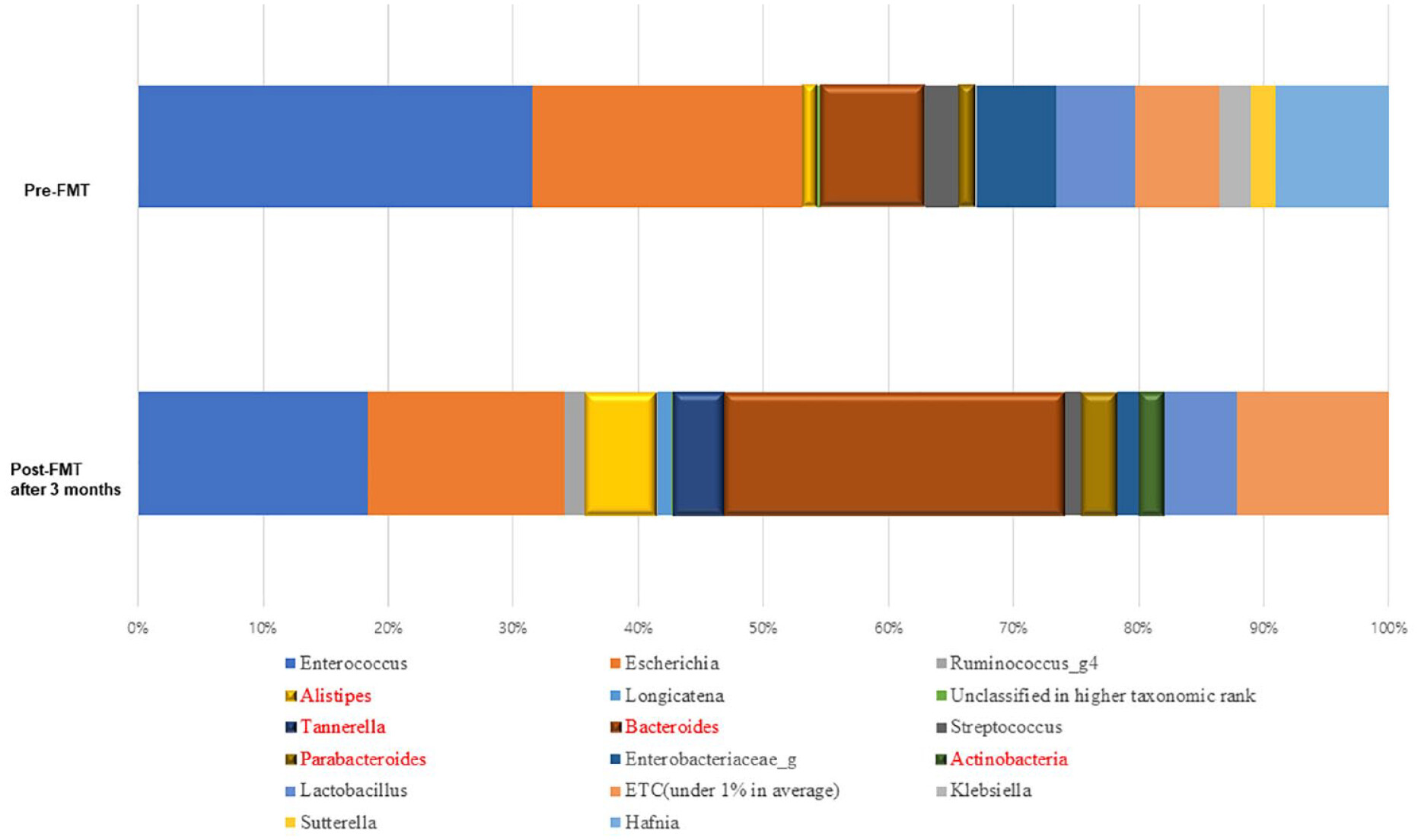💡 This study investigates the impact of Fecal Microbiota Transplantation (FMT) on cognitive function in Alzheimer’s dementia (AD) patients and explores the intricate relationship between cognition, gut microbiota alterations, and gene expression changes. The findings provide compelling evidence of FMT’s potential as a therapeutic intervention to mitigate cognitive decline, offering insights into the role of the gut-brain axis in neurodegenerative diseases.
📍 Key Scientific Findings:
📌 Improvement in Cognitive Function: FMT results in significant improvements in cognitive function, as measured by Mini-Mental State Examination (MMSE), Montreal Cognitive Assessment (MoCA), and Clinical Dementia Rating Scale Sum of Boxes (CDR-SOB). MMSE scores increased from 13.00 to 18.00, and MoCA scores peaked at 21.0 three months post-FMT.
📌 Changes in Gut Microbiota Composition: Analysis of fecal samples reveals alterations in gut microbiota composition after FMT, with an increase in 𝘉𝘢𝘤𝘵𝘦𝘳𝘰𝘪𝘥𝘢𝘤𝘦𝘢𝘦 and a decrease in 𝘌𝘯𝘵𝘦𝘳𝘰𝘤𝘰𝘤𝘤𝘢𝘤𝘦𝘢𝘦. FMT-induced changes correlate with cognitive improvement, emphasizing the role of the gut microbiome in cognitive function.
📌 Correlation Between Gut Microbiota and Cognitive Decline: Correlation observed between cognitive decline and changes in gut microbiota composition post-FMT. Enrichment of 𝘗𝘳𝘰𝘵𝘦𝘰𝘣𝘢𝘤𝘵𝘦𝘳𝘪𝘢 𝘢𝘯𝘥 𝘉𝘢𝘤𝘵𝘦𝘳𝘰𝘪𝘥𝘦𝘵𝘦𝘴 positively linked to cognitive function, highlighting the potential of microbiota modifications in influencing cognition.
📌 Impact of Gut Microbiota on Neuronal Function: Gut microbiota alterations may impact neuronal function directly or indirectly, influencing central neurotransmitters, brain development, including the hippocampus, and microglial morphology. FMT-induced changes potentially address microglial impairment associated with dementia.
📌 Gene Expression Changes in Lipid Metabolism: FMT results in alterations in serum mRNA expression of genes related to lipid metabolism.
Increased expression of genes (ACAA1, EHHADH, and B2M) associated with lipid metabolism and downregulation of FABP6.
📌 Association with Lipid Panel Results: Changes in serum lipid panel results, including increased triglyceride (TG) and low-density lipoprotein (LDL) levels, and decreased high-density lipoprotein (HDL) levels after FMT. Potential correlation between gut microbiota changes, lipid metabolism, and cognitive function.
📍 This study provides compelling evidence supporting FMT as a potential therapeutic avenue for mitigating cognitive decline in Alzheimer’s dementia. The observed link between gut microbiota alterations, changes in gene expression related to lipid metabolism, and cognitive improvement suggests a complex interplay between the gut-brain axis and neurodegenerative processes. FMT emerges as a promising intervention, complementing existing therapies and paving the way for future research into the role of gene expression as a marker for cognitive decline progression.
Link to the article : http://tinyurl.com/57rk4xnc
